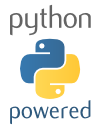Top webfs Alternatives for Lightweight HTTP Serving
webfs is a convenient and lightweight HTTP server designed for serving mostly static content. It's particularly useful for quickly exporting files or serving FTP content via HTTP, offering speedy setup without extensive configuration. While webfs excels in its simplicity and efficiency, especially with its `sendfile()` optimization and recent CGI/SSL support, specific project requirements might necessitate more robust, flexible, or feature-rich alternatives. This guide explores the best webfs alternative options available, catering to a range of needs from simple file serving to advanced web application hosting.
Top webfs Alternatives
Whether you're looking for enhanced performance, broader feature sets, or specific platform compatibility, these alternatives provide excellent solutions to replace or complement webfs in your toolkit.

nginx
nginx [engine x] is a powerful and popular HTTP and reverse proxy server, known for its high performance, stability, rich feature set, and low resource consumption. As a free and open-source solution available on Mac, Windows, Linux, and BSD, it offers advanced features like load balancing, HTTPS support, and a modular system, making it a highly scalable and configurable webfs alternative for handling a large volume of concurrent connections.

Apache HTTP Server
Apache HTTP Server, commonly known as Apache, is one of the most widely used web servers globally. It's a free and open-source solution compatible with Mac, Windows, Linux, and BSD. Apache is highly configurable and customizable, thanks to its extensive module system, which allows users to add a vast array of functionalities. While it might be heavier than webfs, its versatility and mature ecosystem make it an excellent choice for complex web serving needs.

lighttpd
lighttpd (pronounced "lighty") is a secure, fast, and flexible web server optimized for speed-critical environments, making it a strong webfs alternative for performance-conscious users. It is free and open-source, available on Mac, Windows, and Linux, and is designed for high-performance content delivery while maintaining a low memory footprint, similar to webfs but with broader capabilities.

Cherokee
Cherokee is a flexible, very fast, and lightweight web server implemented entirely in C. It's a free and open-source solution for Mac, Linux, and BSD, with minimal dependencies, making it easily embeddable. Its focus on speed and efficiency makes it a suitable webfs alternative for those needing a lean server without sacrificing performance.

Surfer
Surfer is a simple static file server designed for ease of use. It's a free and open-source option for Linux, self-hosted, and Cloudron environments. Surfer comes with a command-line tool for uploading files and a web interface for direct server management, offering a more user-friendly interface for quick file sharing compared to the command-line centric webfs.

Tornado Web Server
Tornado is an open-source, scalable, and non-blocking web server and web application framework written in Python. Available for Mac and Linux, it excels in handling many concurrent connections, making it ideal for real-time web services. While more of a framework than a simple server, its non-blocking I/O model offers a performance advantage over traditional servers for dynamic content, making it a powerful webfs alternative for more complex applications.

SimpleHTTPServer
SimpleHTTPServer (part of Python's http.server module in Python 3) is a built-in, free, and open-source solution available on Mac, Windows, and Linux. It provides an incredibly quick way to spin up a basic HTTP server directly from the command line, similar to the quick-start philosophy of webfs. It's perfect for quickly sharing files on a local network or testing web content without any external dependencies.

SimpleServer:WWW
SimpleServer:WWW is a free, self-hosted web server primarily for Windows users, designed for rapid deployment of a web server to share content or test HTML pages. It aims for simplicity in setup and operation, providing a straightforward experience for users who want to get a web server running without complex configurations, similar to the 'quick export' utility of webfs.
Choosing the best webfs alternative depends on your specific needs, whether it's raw speed, extensive features, ease of use, or platform compatibility. From the robust power of nginx and Apache to the lean efficiency of lighttpd and built-in Python servers, there's a perfect solution for every scenario. We encourage you to explore these options and select the one that best aligns with your project's demands.